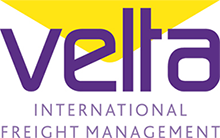Who are Port Health?
Port Health Authorities are responsible for the enforcement of European legislation in relation to food and feed, and items that come into contact with food, imported from non-EU Countries. Imposing these controls on behalf of DEFRA and the Food Standards Agency, Port Health plays an essential role in ensuring the safety of the public and the protection of animal health by preventing diseases and infections from entering the UK.
Whether you are importing products for your own use, to sell, or to use in your catering business, the same rules apply, so if you are looking to import food or drink, pet food, packaging, cutlery or crockery, it’s essential to understand the necessary requirements in doing so.
Import documentation
It’s key to ensure that accurate product descriptions are listed on your paperwork; the invoice, packing list and Bill of Lading. This information is used for creating the cargo manifest by the carrier, and is also required by Port Health as all food imports are subject to documentation checks. Port Health will use these documents to ensure that the information listed matches the information listed on any licences and certification which may be applicable, depending on the commodity being shipped. These commercial documents are also utilised by Port Health as clarification of the items being shipped if the manifest is not specific enough. Providing detailed commodity descriptions on your documentation may prevent delays. For example, listing the import commodity as a ‘plastic container’ as opposed to distinguishing whether it is a general storage box or one that is intended for the storage of food, may result in the shipment being pulled by Port Health for closer inspection, as there are Europe wide import controls over the importation of certain types of plastic, due to previous issues with harmful chemicals from the plastic contaminating food.
You may also find that you face restrictions as to the UK ports that you can bring your shipments into.
Special controls apply to some imported commodities
Products of animal origin are required to enter the UK via a Border Inspection Post, to certify that the produce has been sourced from an approved premises in an approved country. The importance of such controls has been highlighted in recent times with the outbreaks of avian influenza and foot and mouth disease, and the necessity to eliminate the risks of such diseases from entering the food supply chain.
Asides from animal produce, other food products have been deemed as high risk and are subject to special controls. Including, but not exclusive of chilli, peanuts and palm oil, the import of these high risk items to the UK must be made via designated points of entry, and Port Health pre-notified of their arrival via the completion of part 1 of the Common Entry Document (CED).
Restrictions are also imposed on the import of kitchenware from China and Hong Kong. Some polyamide and melamine plastic products from these origins are subject to entry via specific First Points of Introduction (FPIS) and again, pre-notification of arrival is required.
In order to sell goods as organic products you must be certified by one of the organic control bodies and for imports you will have to make sure you have the stamped original copy of the Certificate of Inspection (CoI) from your supplier as evidence that the produce is organic. This will be required by Port Health on arrival to the UK, and failure to produce this documentation means you will not be able to sell the produce as organic, if indeed, you are able to get them at all.
Port Health charges
In addition to providing the relevant paper work, imports of food and food related produce to the UK are subject to charges by Port Health. Documentation examination charges and a Port Health levy may be applied, and for some commodities, additional charges may be applicable. It is worth speaking to an experienced freight forwarder in advance to ascertain what charges will be applied to your goods.
What will happen to your goods if not given a clean bill of health?
If upon inspection Port Health deem that your products are not fit for the purpose intended, goods will be required to be re-exported outside of the EU, or even destroyed – All at additional cost to the importer. So make sure you know what you are importing and that the relevant paperwork is in place, and clearance from Port Health should be a piece of cake!

